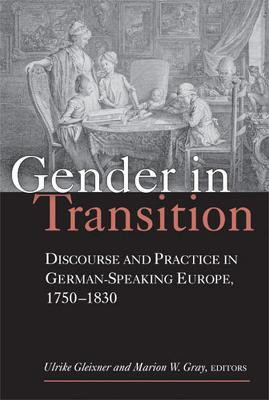Gender in Transition(English, Hardcover, unknown)
Quick Overview
Product Price Comparison
The late Enlightenment saw an acute transformation of gender definitions in the German cultural areas of Europe, leading to a "polarization" of the sexes. Where early modern cultural norms had once affirmed a multitude of differences within society, modernity was founded on an ideal of equality which, although embraced as universal, in practice applied only to white male citizens. The new dichotomies of gender, socioeconomic status, and race created by this disparity between rhetoric and practice held tremendous social implications for all Germans. Law and science inscribed a new set of morals with gendered virtues and social spheres. Masculinity and femininity came to be understood as opposites based in nature. The transformed gender system fueled an epochal social reordering. Gender in Transition recounts the innumerable ways in which this drama played out in German-speaking Europe during the transitional period between 1750 and 1830. A cast of accomplished scholars examine the effect of gender in numerous realms of German life, including law, urban politics, marriage, religion, literature, natural science, fashion, and personal relationships. "Gender in Transition highlights the key role played by developments in German-speaking areas to the creation of the 'modern' gender system. It presents the stimulating research of scholars on both sides of the Atlantic, some of whose work has not been widely available in English, and demonstrates the interconnectedness of material and cultural transformations." -Merry Wiesner-Hanks, author of Women and Gender in Early Modern Europe "This volume fills a long-standing gap in gender history of the 18th and early 19th century in German-speaking Europe. Its interdisciplinary perspectives shed new light on the discourses and practices of gender in a period in which many of the pillars of German 'modernity' were formed-states, civil society, and public sphere. This book will quickly find its place on reading lists for courses in both gender history and history of German-speaking Europe for both the early modern and modern periods." -Kathleen Canning, Professor of History, University of Michigan Ulrike Gleixner is Privatdozentin, Department of History, Technical University Berlin. Marion W. Gray is Professor and Chair, Department of History, WesternMichigan University.


